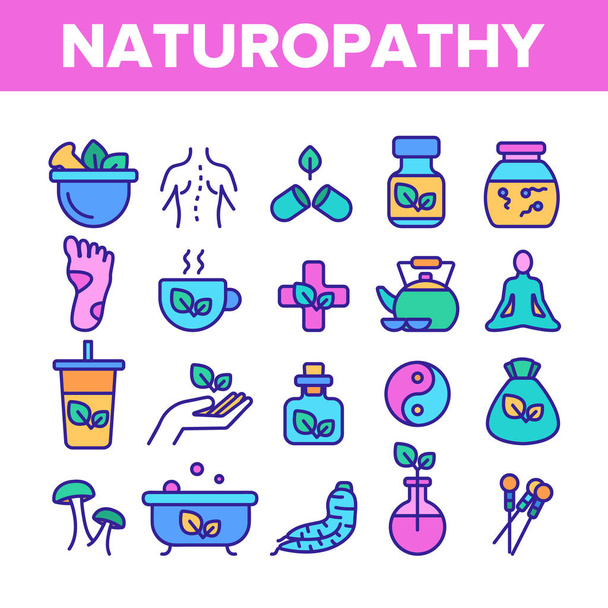
Naturopathy and homeopathy are two terms that are often confused or used interchangeably in the field of alternative medicine. Nevertheless, they have different philosophies, methodologies and practices as approaches to healthcare.
Both naturopathy and homeopathy lie under complementary and alternative medicine (CAM). Although they have the same goal of promoting healing and wellness naturally, their ways are strikingly dissimilar.
What Are The Origins and Historical Context?
Naturopathy originated in the late 19th century focusing on natural healing, while homeopathy was developed by Samuel Hahnemann in the late 18th century using diluted substances.
Also known as naturopathic medicine, naturopathy was derived from Europe’s Nature Cure movement during the 19th century. The term “naturopathy” itself was introduced by John Scheel in 1895 but it was popularized by Benedict Lust who is often referred to as a father of American naturopathy.
On the other hand, homeopathy was founded by late 18th century German doctor Samuel Hahnemann. Unlike conventional medicines which suppress symptoms through chemicals homeopathic medicines stimulate natural processes within our bodies helping them fight diseases more effectively with no side effects .
What Are Their Basic Principles?
Naturopathy’s basic principles include treating the whole person and using natural remedies, while homeopathy’s principle is “like cures like” with highly diluted substances.
Naturopathy is guided by a number of key principles. Naturopaths believe in the inherent ability of the body to get well. Instead of treating symptoms, naturopaths will look for and treat the cause(s) of ill health.
Treatments should be non-invasive and have minimal side effects. Physical, mental, emotional, and environmental components are all considered in naturopathic treatment.
Homeopathy consists of three fundamental principles. A substance that causes symptoms in a healthy person can be used to treat similar symptoms in an unwell person.
Sometimes referred to as infinitesimal dosing. The remedies used are so diluted that there may be no original molecules left;. Homeopaths generally prescribe one remedy at a time that suits the patient’s entire condition.
What Are The Differences in Methods And Treatment?
Naturopathy uses natural therapies and lifestyle changes, while homeopathy uses highly diluted substances based on “like cures like.” Naturopathy is broader, homeopathy is more specific.

Naturopathy treatment methods include nutritional advice, herbal medicine, hydrotherapy (water therapy), physical therapies (e.g., massage, chiropractic ), health counseling, acupuncture and mind-body techniques such as yoga or meditation, etc.
Additionally, naturopaths can employ conventional diagnostic tools such as laboratory tests or physical examinations. They incorporate modern scientific knowledge into their traditional healing wisdom.
The homeopathic remedy consists the use of weakly diluted substances like sugar globules (pellets), aqueous solutions and creams or ointments for external application
Homeopaths can select a cure based on the physical symptoms and mental state of a patient. The selected cure should reflect the overall symptoms of the patient.
How Does The Approach to Diagnosis and Treatment Differ?
Naturopathy diagnoses through a holistic assessment and uses various natural treatments, while homeopathy diagnoses are based on symptom similarity and use highly diluted remedies tailored to individual symptoms.
Naturopathy includes elements such as physical signs, feeding habits and nourishment, lifestyle habits, mental and emotional status, susceptibility to environmental influence, and genetic susceptibility towards illness.
Treatment plans are tailor-made, drawing from multiple therapeutic modalities. Naturopathic practitioners usually work with conventional medical doctors.
This involves an extended interview known as “case-taking,” through which homeopaths try to establish presenting complaints, past illnesses, emotional sphere, living habits, and individual peculiarities.
Based on this information, a single remedy called simillimum is chosen by a homeopath In most cases, it is given in highly diluted forms since high dilution can bring strong positive effects.
What Is The Difference In Regulation and Training?

Naturopathy often requires formal education and licensing, with standardized training. Homeopathy varies widely, with less consistent regulation and training requirements across different regions.
In many countries across the world, naturopathy is an organized profession. Naturopathic doctors (NDs) are usually highly trained in graduate program takes four years to complete, bachelor’s degree, clinical training and licensing exams.
The authority of naturopaths varies by jurisdiction, with some allowing them to prescribe certain medications and perform minor surgeries.
There are different regulations for homeopathy across the globe. In other countries it is a part of their national health care while others do not regulate it much at all. It may vary from short courses to university degrees depending on the country and specific program offered.
How much does it cost to see a homeopath?
The cost to see a homeopath typically ranges from $50 to $200 per session, depending on location, practitioner experience, and the length of the consultation.
On average, these visits can range from $50 to $300 per session, depending on where you live and the expertise level of your chosen practitioner. Their prices for initial consultations might be slightly higher due to longer appointment times.
What Are The Two Types Of Homeopathy?
The two types of homeopathy are classical homeopathy, which uses a single remedy based on symptoms, and complex homeopathy, which combines multiple remedies for treatment.
Classical homeopathy which utilizes one remedy after assessing all individual’s symptoms as a whole. Then there is complex homeopathy where several drugs are put together just to treat specific complaints.
Why Do Allopathic Doctors Reject Naturopathy?
Allopathic doctors may reject naturopathy due to concerns about lack of scientific evidence, efficacy, and safety, as well as differences in treatment philosophies and methodologies.
Allopathic doctors reject naturopathy because there is insufficient scientific proof establishing its effectiveness; they embrace divergent medical philosophies or are scared about possible dangers or conflicts with conventional treatments.
Is a homeopathic doctor the same as a holistic?
The homeopathic doctor is different from the holistic doctor, who considers the whole person and may employ homeopathy, among other methods.
Should I see a naturopath or a homeopath?
Choose a naturopath for a broad approach using various natural treatments and lifestyle advice, or a homeopath for specific, individualized remedies based on symptom similarity.
Whether to consult a naturopath or homeopath depends on your health needs. Naturopathy uses several natural remedies like dietary changes and lifestyle, while homeopathy concentrates solely on homeopathic remedies.
Do holistic doctors believe in medicine?
Yes, holistic doctors believe in medicine, integrating conventional treatments with alternative approaches to address the whole person and provide comprehensive care.
Yes, holistic doctors do believe in medicine although they focus more on integrative and natural approaches, which considers the entire being by merging conventional treatments together with alternative therapies to sustain general wellness.
Why are holistic doctors so expensive?
Holistic doctors may be expensive due to extended consultation times, personalized care, and the integration of multiple treatment modalities, which often aren’t covered by insurance.
Holistic practitioners have higher prices than other medical professionals due to long consultation times, individually tailored patient plans, lack of insurance for alternative therapies leading to out-of-pocket expenses. They also use specialized diagnostic and treatment options.
Conclusion
Although both belong under alternative medicine, it must be understood that naturopathy and homeopathy are dissimilar practices with diverse philosophies and methodologies. Having an all-natural view towards health includes various kinds of normal healing techniques in its practice while using diluted substances, which defines homeopathy.
